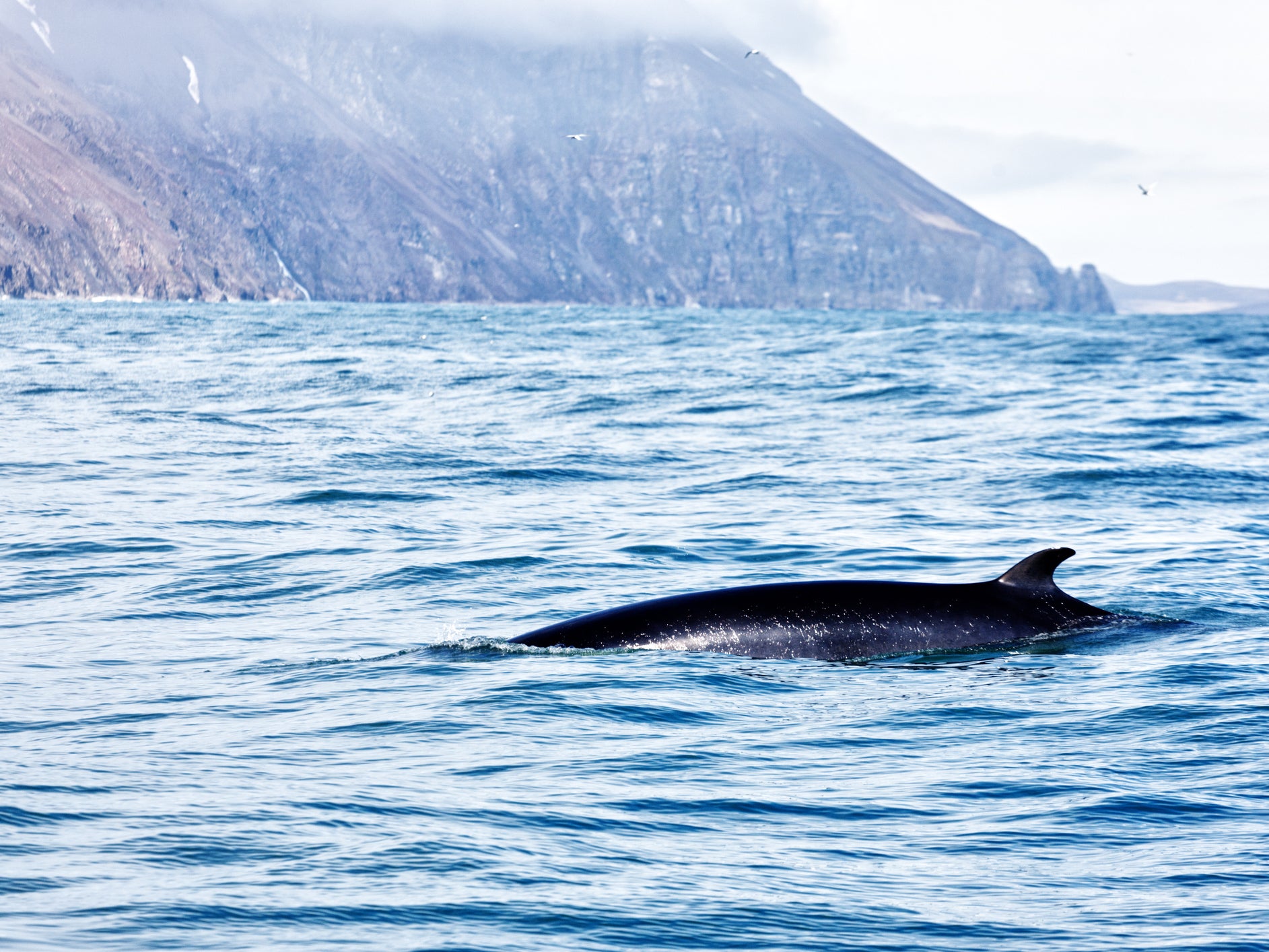Plans for six-hour hearing tests on wild minke whales condemned as ‘completely unacceptable’
Plans to capture and run tests on 12 juvenile minke whales have been condemned by more than 50 scientists and wildlife experts

Plans by Norway to capture and run tests on minke whales have come under fire from scientists and wildlife experts who say the experiments are "completely unacceptable" and could cause injury and stress to the animals.
A dozen juvenile minke whales will be caught in nets off Lofoten, Norway, held between two rafts for up to six hours with electrodes placed under the skin, before being satellite-tagged and released back into the sea.
Researchers hope the study – which is being funded by US oil and energy authorities, fishery authorities and the US Navy – will measure the whales' hearing and increase understanding of how they are impacted by noise pollution by human activity.
But more than 50 scientists, vets and wildlife groups from around the world have signed a statement of concern to condemn Norway's decision, claiming the tests could risk the safety of both the animals and humans involved and calling for the experiments to be scrapped.
In a letter to Norwegian prime minister Erna Solberg by the wildlife charity Whale and Dolphin Conservation, the experts said the trials should be cancelled because "they are completely unacceptable from a conservation, scientific and animal welfare point of view".
The letter's signatories include academics from Norway, Canada, Australia and the UK as well as marine organisations Orca and the Hebridean Whale and Dolphin Trust in Scotland.
They claimed the research would be unlikely to produce any meaningful data as it would take place in an unnatural context and raised concerns about the potential risk to the safety of the animals and humans involved.
They warned the whales could be injured or suffer from "capture myopathy" – a condition where a wild animal is harmed or dies from stress or exertions during capture and restraint – as a result of the experiments.
"We urge this project to be stopped as it may lead to considerable trauma for the whales targeted, without contributing to useful science," the statement reads.
Vanessa Williams-Grey, policy manager at Whale and Dolphin Conservation, said she and the other signatories had "grave concerns" about how the study could lead to "considerable suffering" for the whales.
She said: "This experiment is both ill-conceived and unnecessary – we already know that human-made noise in our ocean damages and disturbs whales.
"We have grave concerns about the animal welfare implications. Minke whales tend to be skittish and juveniles especially so. The risk of capture myopathy and other consequences of an extremely stressful event like this are high.
"If it is allowed to go ahead, it could lead to considerable suffering for the individual whales trapped and forcibly restrained for these tests. This is not good science."
Join our commenting forum
Join thought-provoking conversations, follow other Independent readers and see their replies
Comments